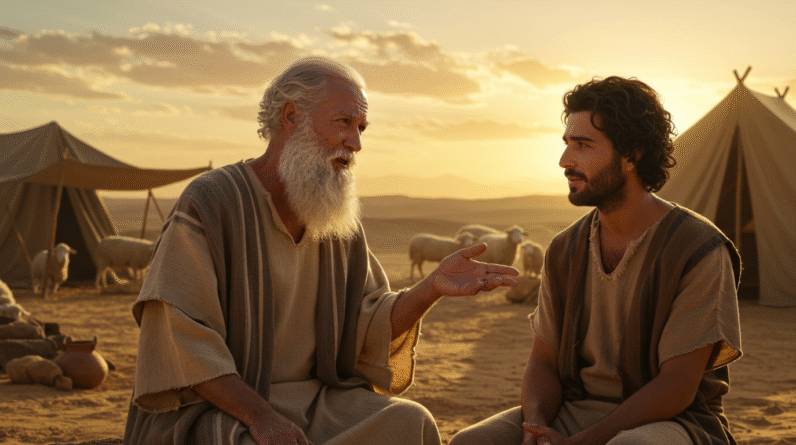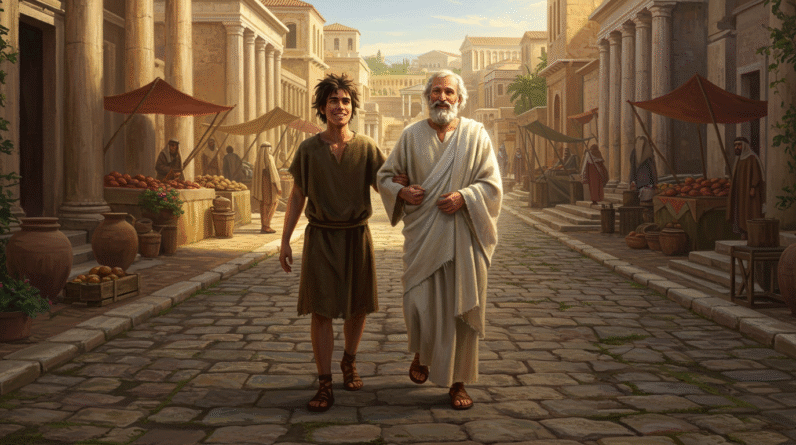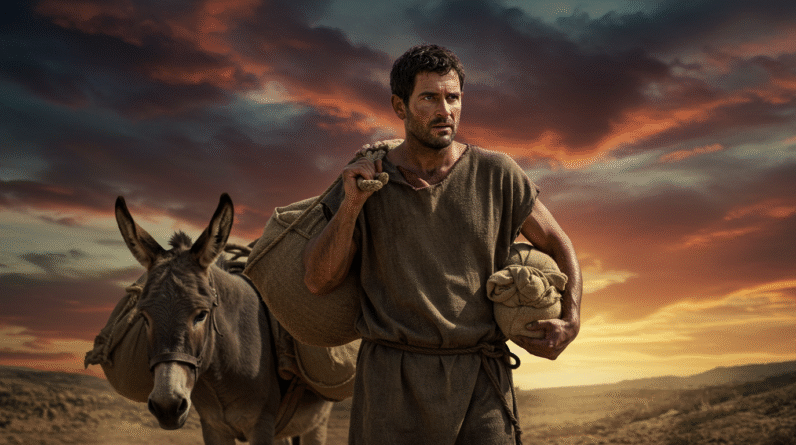Dive into Zebedee’s understated influence in the Bible. Explore his pivotal role in shaping the apostles and the nuanced lessons on silent legacy and faith.

Exploring Zebedee’s Influence on the Biblical Narrative
Introduction
Imagine a world where being a fisherperson is not just a trade but a legacy passed down through generations. It’s a life enveloped by the rhythm of the sea—both tranquil and tumultuous—and it’s in this world that you meet Zebedee. As a significant yet understated figure in the Bible, Zebedee’s role as the father of two pivotal apostles, James and John, reveals an influence that is paradoxically subtle and profound. Though Zebedee himself is not prominent in many biblical scenes, his presence can be felt underlying the choices and destinies of his sons, catalyzing their commitment to following Jesus.
Their Story in the Bible
Zebedee’s introduction to the Bible might seem like a mere footnote at first glance, yet it’s anything but insignificant. The critical scene unfolds as Jesus calls his first disciples in the Gospel of Matthew. Zebedee is mending his nets by the Sea of Galilee when his sons are summoned by Jesus to become “fishers of men” (Matthew 4:21). This moment is laconic in its telling, yet it speaks volumes. Zebedee does not protest or hinder his sons, suggesting either a silent understanding of a greater calling or an acceptance of their independence and decisions.
Later, in the shadow of the Crucifixion, we glimpse the enduring influence of Zebedee within the loyal presence of “the mother of Zebedee’s sons,” who watched from a distance as Jesus was crucified (Matthew 27:56). Her presence at such a critical moment illustrates the family’s deep connection to Jesus’ ministry—an involvement that would no doubt have been influenced by Zebedee’s support and faith, even if it is conveyed through the quiet, unseen ways parents often have.
Lessons from Their Life
From Zebedee’s life, there’s a subtle yet powerful lesson on influence and support. First is the understanding and acceptance of letting go. Zebedee’s willingness to allow his sons to leave their familial occupation to follow a wandering rabbi speaks of a profound trust, either in their judgment or in the higher calling they pursued. It is a silent testament to the idea that sometimes, love is expressed in release rather than retention.
Second, Zebedee indirectly underscores the importance of legacy—not just in worldly terms but spiritually as well. While he might have been a fisherperson, his true legacy lay in the roles his sons played in the burgeoning Christian movement. Hence, from Zebedee, we learn that influence is not always loud or direct; it can be the quiet foundation upon which others build their dreams and callings.
Connection to Today’s World
Reflecting on Zebedee’s role prompts you to consider today’s parenting landscape, whether as literal parents, mentors, or leaders. His story resonates deeply within a culture that often wrestles with hovering too closely over children or proteges. His quiet yet firm support could well serve as a guiding light for those looking to balance between holding on and letting go.
In a world filled with career paths and life choices vastly different from those of previous generations, Zebedee’s patient, supportive presence offers a timeless lesson in faith and the courage to let others find their path. It encourages us to trust in the potential and decisions of those we cherish, providing them with the freedom needed to answer their calls—whatever they may be.

Key Bible Verse
“Going on from there, he saw two other brothers, James son of Zebedee and his brother John. They were in a boat with their father Zebedee, preparing their nets. Jesus called them…” (Matthew 4:21).
This verse captures the humdrum of daily life with an air of anticipation. It’s the pivotal hinge between ordinary labor and extraordinary calling. Zebedee’s presence during the disciples’ calling underscores the blend of the ordinary and the divine that so often characterizes biblical narratives.
Historical/Cultural Context
In understanding Zebedee’s story, it’s crucial to recognize the socio-cultural backdrop of his time. Fishing was the backbone of Galilean society. It was both a trade and a community-shaping industry. As a notable fisherperson, Zebedee would likely have held a position of quiet respect within his community, and his boys’ decision to leave this trade for ministry was more than personal—it was culturally radical.
Thought-Provoking Question
As you navigate the myriad choices in your life or influence others in theirs, do you embody Zebedee’s quiet faith in allowing those you love to pursue their true calling, even at great personal cost?
Conclusion
Zebedee may not dominate the biblical narrative, but his influence is irrefutable, woven quietly through the lives of his sons, shaping their roles in early Christianity. His tale is a meditation on the strength of silent support and enduring faith, offering guidance for our modern world.







